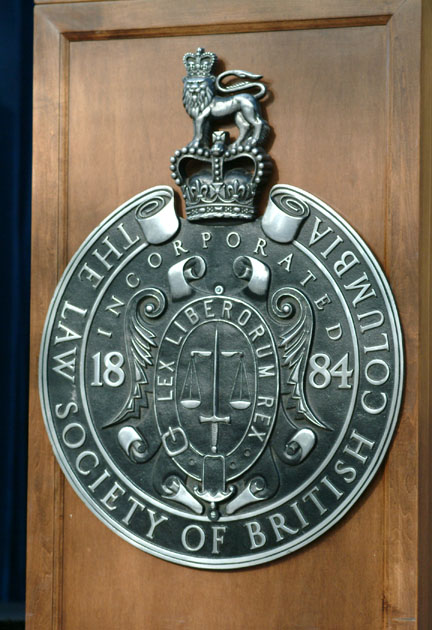
The Law Society of British Columbia wants all its member lawyers to read the Truth and Reconciliation Commission of Canada report, says LSBC president Ken Walker.
 Walker says that by reading the report and its 94 recommendations, lawyers will gain a fuller understanding of the cultural genocide the report speaks of as it chronicles the injustices that occurred to First Nations forced into state-sponsored and church-run residential schools. “We hope that all lawyers will perhaps start to understand the wrongs to the indigenous people in Canada and how we can work to facilitate reconciliation,” he says.
Walker says that by reading the report and its 94 recommendations, lawyers will gain a fuller understanding of the cultural genocide the report speaks of as it chronicles the injustices that occurred to First Nations forced into state-sponsored and church-run residential schools. “We hope that all lawyers will perhaps start to understand the wrongs to the indigenous people in Canada and how we can work to facilitate reconciliation,” he says.
Integral to the report is the role police and lawyers played in responding to complaints of abuse of children in residential care, but it also argues for greater intervention to reduce over-represented numbers of youth in custody and in the foster care system, the victimization of indigenous people, a national inquiry into missing and murdered indigenous women, and the over-represented numbers of First Nations people in prisons.
“The benchers unanimously agreed in October that addressing the challenges of the report was one of the most important and critical obligations facing the country and legal system today,” says Walker. “Two of [the recommendations — 27 and 28 —speak specifically about the legal profession, but we realize the need to go beyond those recommendations.”
Recommendation 27 calls for the Federation of Law Societies of Canada to ensure lawyers receive cultural competency training (history, treaties, aboriginal rights, indigenous law, and the UN Declaration of Rights for Indigenous Peoples) plus skills training in intercultural competency, conflict resolution, human rights, and anti-racism. Recommendation 28 calls for all law schools to bring forward courses addressing all of these competencies.
Walker says he is hopeful the LSBC benchers will have an action plan ready early in 2016. “We will be seeking the viewpoint of the aboriginal community,” he says.
Walker says he has been in contact with deans at all three B.C. law schools and was pleased to learn they all either have existing courses on aboriginal law and culture or are in the process of providing them. “So, I can say that the legal education community is taking the report seriously,” says Walker.
The LSBC has already existing programs in place encouraging aboriginal lawyers. It offers a province-wide mentorship program for aboriginal law students and articling students using either aboriginal or non-aboriginal lawyers. It also awards a $12,000 scholarship annually to an aboriginal graduate student in the field of law. The goal is to support the development of indigenous leaders and role models in the legal academic community, in addition to retaining aboriginal lawyers in the profession. The latest winner was Darcy Lindberg, a graduate student in law at the University of Victoria.
The report, in recommendation 50, calls for the federal government to fund indigenous law institutions to promote the understanding, development, and use of indigenous law and access to justice in accordance with the unique cultures of aboriginal people in Canada.
The role of traditional justice is slowly becoming part of the mainstream. Community courts throughout the province have made use of First Nations elders in their sentencing, while Gladue rights encourage judges to take a restorative justice approach to sentencing if the individual is native. These initiatives are a departure from the traditional legal system that has been taught for generations in law schools, Walker says, but they provide answers to some of the TRC report’s concerns.
“We will be looking at what we can learn from all this and how we can move forward,” he says. Ultimately, the decision will lie with the federal government on what changes it makes to the judicial system.